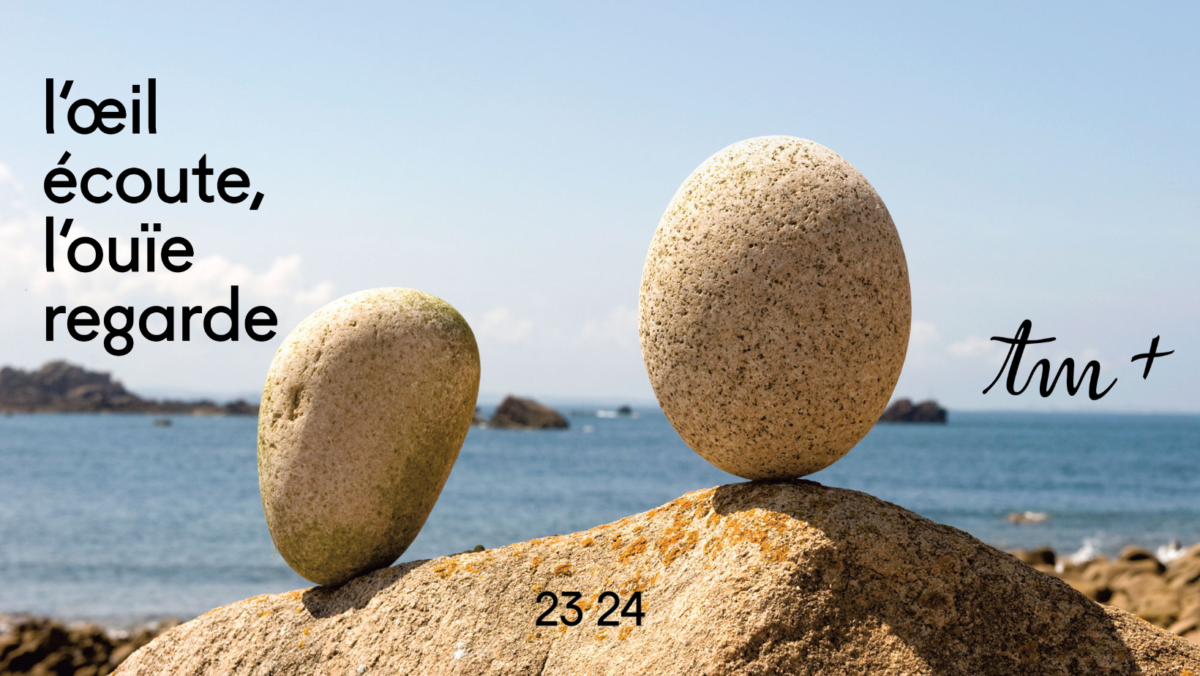City Life
Cast
Elise Chauvin, soprano
Gilles Burgos, Anne-Cécile Cuniot, flutes
Marika Lombardi, Sylvain Devaux, oboes
Nicolas Fargeix, Bodgan Sydorenko, clarinets
Julien Le Pape, Mara Dobresko, pianos
Adonis Palacios, Emiri Komura, keyboards
Florent Jodelet, Gianny Pizzolato, NN, percussions
Maud Lovett, Pauline Klaus, violins
Marion Plard, viola
David Simpson, cello
Charlotte Testu, double bass
Laurent Cuniot, direction
Marie Delebarre, stage management
Yann Bouloiseau, sound
Program
Elliott CARTER
Gra for solo clarinet
Steve REICH
Cello Counterpoint for amplified cello and multichannel tape
Elliott CARTER
A Mirror on Which to Dwell for soprano, flute, oboe, clarinet, percussionist, piano, violin, viola, cello, double bass
Steve REICH
City life for large ensemble
TM+ opens a new space between two American modernities.
Steve Reich was born in 1936 in New York, where Elliott Carter was born in 1908 and died in 2012. The younger is one of the few stars of contemporary music, his work crosses geographical, cultural and media borders. The elder was a discreet force of nature, less celebrated here despite his aesthetic familiarity with Europe.
At first glance, nothing seems to bring their music together. A disciple and friend of Charles Ives, and a student of Nadia Boulanger in Paris, Elliott Carter let the neoclassical trend flow without him in order to perfect, without trying to seduce, a personal language based on musical time, instrumental dramaturgy, harmonic material and polyphonic construction. Steve Reich, with his openness to African percussion, his taste for popular music, his reflection on rhythms and trance, has successfully cleared an opposite path, immediately accessible and which extends to contemporary music.
Thus Carter would be modern in the spirit of the avant-garde of the fifties, while Reich would experiment with the charms of postmodernity.
But a concert that praises opposites is not, if it is seriously constructed, an absurd mirror game but an invitation to curiosity, a dynamic architecture of listening where – to use the vocabulary of pigments and prisms – each passage works on the nuances between them, each color places its complementary on its neighbor, which modifies the general hue: inertia is shaken, habits are changed, one hears one better in contact with the other.
Elliott Carter’s rigorous writing fascinates, but it can also create a screen between it and the listener. Steve Reich’s rhythmic shifts cause dazzling vertigo, yet they spin in a sometimes disembodied space. The challenge of the program is to make austerity seductive and to give meaning to repetition.
Gra (1992) – “Game” in Polish – is a gift from Elliott Carter to composer Witold Lutoslawski for his 80th birthday. The ductility of the solo clarinet, its fluidity, evokes for Carter the enchantment of a friendship. This is matched by the dancing energy – and lyrical in its central movement – of Cello Counterpoint (2003), in which Steve Reich brings the cello into dialogue with its tape doubles.
The two ensemble pieces are, each in their own way, masterpieces. Elliott Carter’s A Mirror on Which to Dwell (1975) combines refined sonorities and subtle counterpoint between the protagonists, with an expressive intensity that keeps breathing spaces open. On the contrary, Steve Reich does not play with silence but with fullness and repetition: through its contrasts, its accelerations, the permanent traffic between acoustic sounds and the sampled cries of New York, City Life (1995) goes beyond the formal fascination for loops in order to install a compact, powerful and captivating urban sound universe.
The praise of opposites also serves as a reflection on contemporary American music: perhaps it is not as univocal as it is said to be, perhaps there is room for several different modernities. And if, between Carter and Reich, “it’s been a honeymoon!“
Coproduction : TM+, Maison de la musique – scène conventionnée d’intérêt national – art et création – pour la musique
© DR


